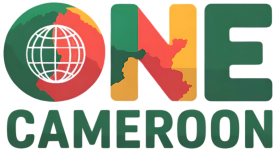Cameroon’s two largest cities, Douala and Yaoundé, offer a vibrant urban tapestry that blends tradition with modernity. As the economic powerhouse, Douala bustles with commerce—its ports, markets, and corporate offices pulse with energy. In contrast, Yaoundé, the nation’s capital, showcases government buildings, diplomatic missions, and leafy avenues that betray its colonial history. Yet both cities are playgrounds of culture, cuisine, and nightlife.
Strolling along Akwa Market in Douala, one encounters a kaleidoscope of fabrics: wax prints in bold patterns, artisanal jewelry, and handcrafted wooden carvings. Local entrepreneurs hawk grilled fish (poisson braisé) and Koko (fermented corn pudding), fueling shoppers for their bargain-hunting. Meanwhile, the Ekom-Nkam Waterfalls, a two-hour drive from Douala, offer a scenic escape: tourists often hike through dense rainforest to witness the twin cascades, their mist-laden spray a refreshing counterpoint to the urban heat.
Yaoundé’s Mont Fébé hill affords panoramic views over the city. Atop is the Trabzon Peak Restaurant, where diners sip robust Cameroonian coffee while taking in verdant hills punctuated by government edifices. The Mokolo Market, meanwhile, is Yaoundé’s version of Akwa—but with a local twist: vendors supply everything from locally ground bongo spices to fresh plantains and smoked fish. As evening falls, trendy cafés in Bastos and Melen districts fill with students and young professionals sipping smoothies made from local mangoes and passion fruit.
Nightlife in Cameroon’s cities defies stereotypes. In Douala’s Bonanjo district, live music venues host Makossa and Bikutsi artists, their infectious rhythms drawing crowds onto makeshift dance floors. In Yaoundé, rooftop bars overlooking the city offer cocktails incorporating local ingredients—hibiscus-infused gin or honey-sweetened rum. A burgeoning craft-beer scene also exists: Mbella Beer and Bati Plain brewhouses showcase locally malted grains and tropical hops.
For expats and returnees alike, coworking spaces such as ActivSpaces (Douala) and Impact Hub (Yaoundé) offer reliable Wi-Fi, collaborative desks, and networking events. Tech entrepreneurs pitch mobile-payment solutions tailored to Cameroonian realities—informal economy vendors rely on these innovations to accept cashless transactions. Meanwhile, creative workshops in both cities teach digital illustration or video editing, reflecting a younger generation eager to tell Cameroonian stories through new media.
Urban parks like Bonanjo’s Douala Metropolitan Park and Mvog-Betsi Zoo in Yaoundé provide green respites: families picnic under mahogany trees, teenagers practice skateboarding tricks, and amateur joggers circle winding paths. Farmers’ evenings pop up on weekends, featuring locally made jams, spices, and artisanal chocolates crafted from regionally grown cacao. Food trucks park near landmarks—one famous for its spicy ndolé cheese wrap, another for fresh coconut smoothies.
In short, life in Douala and Yaoundé is a dance between the old and the new. From colonial-era architecture to cutting-edge startups, Cameroon’s urban centers are simultaneously rooted in tradition and reaching toward the future. For any visitor hoping to understand the nation’s heartbeat, a week spent exploring markets, sampling street food, and attending local performances in these two cities will be an immersive introduction to Cameroon’s dynamic urban lifestyle.









